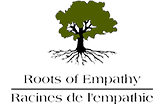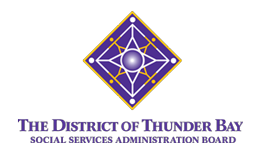Little Lions Child and Family Centre is an organization which provides child care for children 6 months to 12 years of age according to the Waldorf philosophy or “Steiner” education. The following Program Statement is consistent with the Ministry of Education's statement on programming and pedagogy issued under subsection 55 (3) of the Child Care and Early Years Act, 2014 and #46 of Ontario Regulation 137/15. It is the policy of Little Lions to review the program statement annually to ensure compliance and congruency with our own philosophy and policies.
VISION: Resilient and compassionate children in a healthy, vibrant community where love and wonder are the basis of learning and living.
MISSION STATEMENT: Little Lions Child and Family Centre Directors and Staff are dedicated to the principles of “Waldorf” or Steiner Education and Child Care. We strive to foster the realization of these principles through exceptional child care that nurtures the whole child, supports families and strengthens the community.
GOALS: Little Lions Child and Family Centre will endeavor to provide an environment and programs in which each child will flourish and grow through the early stages of development. Little Lions seeks to provide a warm, home-like atmosphere with tasks and domestic routines to follow. Programs will allow plenty of time for imaginative play with a nature-oriented environment as expressed and practiced in Waldorf inspired education.
The Waldorf philosophy focuses on four main senses during the early years. These include the sense of touch, balance, self-movement (proprioception) and the life sense which is the sense of well-being that is critical for the healthy development of any child. We nurture these senses by our daily, seasonal and yearly rhythm, our sensory rich environment and the loving kindness expressed by all staff.
Children know they belong in our program in many ways. For example, indoor programs will have individual cubbies and a chair that has their own personal chair cover. Most importantly, they know they belong because the caregivers can be trusted to make them welcome, to know them, and to provide for their unique needs.
Each child is seen as an individual and we strive to see them for who they are. We strive to recognize their strengths and find the opportunities to further their development. Frequently this happens through play-based assessment or through the keen observation of trained, caring staff. Relating to children respectfully involves taking into account what they need and want. Encouraging them to express and act out on their preferences builds and strengthens a sense of responsibility for themselves and supports the idea that children are active contributors to their own and other's experiences. Children's participation in play is a valuable way to support their development and learning. Making decisions and having choices are very important elements in the daily experience. Child-initiated and adult-supported play experiences afford children the opportunities to develop autonomy and independence as well as to learn social and relationship skills as they explore their interdependence and connectedness with peers and educators.
The educators support children in their ability to self-regulate. All practices are respectful of a child's autonomy while being conscious of the need for safe exploration of the environment during play and positive interactions with other children and adults. This may be achieved through environments (natural or set up by adults) for children to explore successfully and safely, role-modelling appropriate language and communication and otherwise finding just the right tool for a child to use to achieve self-regulation. Staff role model appropriate language and communication always. Empathy is developed using the healing basket which helps children to focus on the healing act following an incident where another child has been hurt. All staff create a safe social environment by their awareness of group dynamics which then guides their pratice (i.e. setting up the program room).
Our environments provide opportunities for children to learn to care for themselves, their peers, adults and the rest of the natural world as well as the materials around them. Indoor programs have plants, pets, and babies (dolls) that need to be cared for. They have special items that must be handled with care, so children learn to have reverence for something that is precious. The environment is inviting, appealing to their changing interests and needs and is aesthetically pleasing, with furniture, toys and furnishings made from natural materials. Broken toys are often mended in the program with or by children. Programs situated in natural settings foster a sharing spaces perspective that is respectful of the more-than-human world.
Our trained staff are cognizant of the fact that a healthy rhythm to the day is crucial. We strive for a flow to the day rather than a schedule. In this way, the day may flow more according to the interests and activity level of the children rather than the clock. The day must have a “breathing” quality with moments of activity and moments that are more subdued. For example, an in-breath such as story time might be followed by an out-breath such as active running. We are respectful of the need for all children to have a rest time or quiet time, even if they do not sleep. Quiet activities, such as fidget bags, will be available for children choosing to rest quietly. As much as possible we allow the children to find their own natural rhythm for rest or sleep. We support their oral language development through storytelling, songs, traditional rhymes and games which are also built in to the rhythm of the day. Staff members sing through the transitions which tend to be slow and natural.
Both indoors and out we offer positive learning environments and natural settings where experiences are child-initiated rather than contrived by the adults. Children are actively involved in the care of their environments. For example, in playground and gardens, they may be engaged in meaningful tasks such as raking, sweeping and shovelling. By dressing appropriately, children can enjoy outdoor play in most types of weather. This enables children to play in wet weather and to enjoy puddles without inconvenience to the parent. The role of the adult is to observe their play, notice their interests, emerging interests, and developmental needs, plan and offer experiences accordingly, find ways to extend the learning and therefore optimize the child's development. At times the adult may role model a new experience, inviting the child to join in and supporting their learning through the process which encourages on-going learning. Our goal is for children to be self-motivated learners. The emphasis is on process rather than just the end result and healthy play is observed, valued, encouraged and supported by the staff.
Our playgrounds are natural and include a sandbox, gardening area or containers, logs and stumps, trees, rocks and other natural items. A variety of tools, equipment and “loose parts” is provided to ensure that children can interact with the natural environment in a creative way which supports inquiry-based learning. Artistic endeavours are promoted outdoors through simple means such as chalk drawings and collaging natural items and sometimes more complex crafts or activities such as weaving with natural items. We promote healthy gross motor play such as running, jumping and climbing (when safe) and often take children on excursions to places where this is most likely to happen. Some of our sites compost although not all are allowed to do so depending on the school policy. In general, our organization works hard to support the staff so that they will be equally excited to be outdoors as the children are.
Health and safety is a priority. We not only follow the common guidelines, but we far exceed them in some cases. We consider all aspects of the child's safety including recent research which shows that “no risk” environments have a detrimental effect on children. To achieve that balance, our supervisors have been trained to do “Benefit Risk Assessments” and are encouraged to do this in all programs, indoors and outdoors, with their staff and where appropriate with the children.
Food is prepared daily on site by the cook. Our food policy is extensive, taking into account information from the Thunder Bay District Health Unit in regards to nutrition as well as supplementary information from Waldorf sources. We start with high quality ingredients, often organic, locally purchased if possible. We avoid foods with excess fats, sugars, hormones, high levels of mercury, preservatives. Every effort is made to provide wholesome food prepared with attention to safe food handling and storage. Care is taken to serve food in an aesthetically pleasing manner in a home-like setting which fosters a sense of community. Food is served family–style with children encouraged to self-serve when possible. In many programs, children are frequently included in food preparation and wash their dishes following their snack. Foods from various cultures are enjoyed.
Ongoing open communication with parents/guardians is essential for us to work as a team to support their children to achieve their goals. Staff members strive to communicate verbally daily with families and, in some programs, through daily records as well as through newsletters. As much as possible, we try to be there when the parent/guardian needs us. Over time this develops into a trusting relationship which facilitates open communication.
A trusting relationship between co-workers and administration is also fostered. We do this by transparency regarding financial practices and decisions that directly impact staff.
Staff meetings ensure that issues arising are dealt with in a timely manner. We are proactive rather than reactive and this opportunity for frank and open discussion enables us to better support the children and families. Weekly meetings also include opportunities to discuss topics related to the four principles of “How Does Learning Happen?” as well as the Waldorf philosophy and nature and wild pedagogies. Staff meeting time may also be used for team planning where staff consider the interests and needs of the children they have observed during the previous week. Occasionally, staff will conduct a child study according to the Waldorf philosophy.
Staff complete an annual Self-Evaluation and a Behaviour Management Self-Evaluation (followed by action plans when deemed necessary by the supervisor) to always ensure positive interactions with children. Staff are instructed in the aspects of the Waldorf philosophy that relate to the well-being of children, including emotional and spiritual well-being. Positive interactions with parents/guardians occur daily and take many forms from the initial interview process, an extensive application form which includes the child's history, through the orientation and daily written and verbal communication with staff. We find that interactions are always better when people are well-rested. We want our staff to be patient with children and that is enhanced if they are not tired or over-worked. We want our staff to be patient with children and that is enhanced if they are not tired or over-worked. We provide opportunites for counselling through an EFAP program to ensure good mental health.
We realize how important it is for our staff to have professional development opportunities that are both mainstream and Waldorf. This is obtained through site specific training that can take place during staff meetings when requested.
Little Lions is a Red Cross Training Partner, so we ensure that all our staff not only have their First Aid training but also have regular updates that include childcare specific examples. We provide an annual workshop on Choking to raise the awareness of parents/guardians.
We see ourselves as integral to the community and are committed to collaborating with community agencies, schools and professionals to support children, their families and staff. Our organization does this by participating actively with such organizations as Roots of Empathy, School Food Environments and Keeping Kids Healthy. We regularly use the services of Children's Centre Thunder Bay and Thunder Bay Health Unit to better support any children with special needs. We take part in assemblies and school events, working in partnership or taking a leadership role. We have built strong connections with other agencies that support families in need, such as Dilico, and have worked to create a child care centre that has been invaluable in supporting young single mothers, our most vulnerable population.
The Waldorf philosophy is one that stresses the need for continual striving toward our ideals. We believe that we are always in the process of “becoming”, adults and children alike, and so in order to further this, we must look at ourselves as well as at children. This need for self-reflection is integral to our working in this field.
Future goals for our organization include improving our pedagogical documentation and ongoing communication with parents/guardians. We hope to go beyond the typical family board that we are currently using. This will take many forms including digital documentation as we explore current practices on making learning and interactions visible.
We see our childcare centre as a “learning organization” where knowledge and information is readily available so that decision–making can happen at many levels. We are striving for the autonomy for each centre under the umbrella of the larger organization. Our approach in this regard is for each Site Supervisor to have a form and financial formula which allows them to truly see the impact of their daily decisions. They meet quarterly with the bookkeeper to see if they are meeting budget expectations. These meetings may be followed up by meeting with the CEO to discuss their decision making process and the impact it has on the running of the centre. Another aspect of this study of our individual centres is to see ourselves through the eyes of our community partners.
The program statement will be read by all staff upon hire and annually thereafter during the annual Policy and Procedure Manual review. The program statement will be the new standard to which we hold all our staff but we see this as a living document which will change over time. Job expectations and performance appraisals will reflect this. Staff meetings will be a time for site supervisors to reflect on the program with their staff to further their understanding of the organization's philosophy and practices and to find opportunities for improvement. Site Supervisor meetings, which happen approximately every four weeks, will be a time for us to reflect on the program statement to ascertain whether or not we are achieving our goals or if new goals are necessary. These findings will be brought forward to the board by the CEO.
This program statement may be taken as our assurance we are committed to live the vision we espouse.





